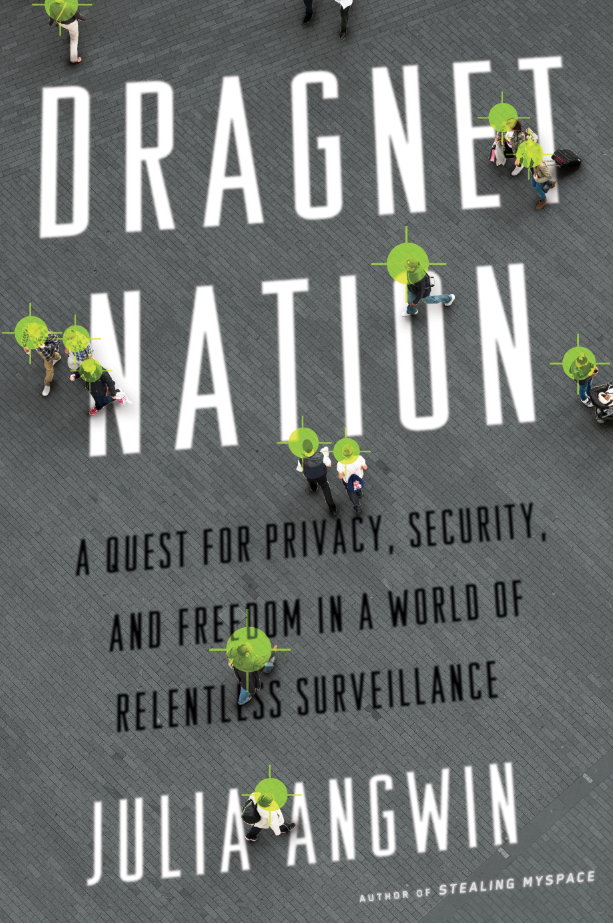My book, Dragnet Nation: A Quest for Privacy, Security and Freedom in a World of Relentless Surveillance is now available on Amazon.com, Barnes & Noble and IndieBound. Here’s the description and some reviews:
In Dragnet Nation, Julia Angwin of The Wall Street Journal reports from the front lines of America’s surveillance economy, a revelatory and unsettling look at how the government, private companies, and even criminals use technology to indiscriminately sweep up vast amounts of our personal data.
In a world where we can be watched in our own homes, where we can no longer keep secrets, and where we can be impersonated, financially manipulated, or even placed in a police lineup, Angwin argues that the greatest long-term danger is that we start to internalize the surveillance and censor our words and thoughts, until we lose the very freedom that makes us unique individuals. Appalled at such a prospect, Angwin conducts a series of experiments to try to protect herself, ranging from quitting Google to carrying a “burner” phone, showing how difficult it is for an average citizen to resist the dragnets’ reach.
Her book is a cautionary tale for all of us, with profound implications for our values, our society, and our very selves.
—-
“Dragnet Nation is an impressive picture of the new world of electronic surveillance—from Google to the NSA. Julia Angwin’s command of the technology is sure, her writing is clear, and her arguments are compelling. This is an authoritative account of why we should care about privacy and how we can protect ourselves.”
—Bruce Schneier, author of Liars and Outliers: Enabling the Trust That Society Needs to Thrive
“In this thought-provoking, highly accessible exploration of the issues around personal data-gathering, Julia Angwin provides a startling account of how we’re all being tracked, watched, studied, and sorted. Her own (often very funny) attempts to maintain her online privacy demonstrate the ubiquity of the dragnet—and the near impossibility of evading it. I’ll never use Google in the same way again.”
—Gretchen Rubin, bestselling author of Happier at Home and The Happiness Project
“Julia Angwin’s pathbreaking reporting for the Wall Street Journal about online tracking changed the privacy debate. Her new book represents another leap forward: by showing how difficult it was to protect her own privacy and vividly describing the social and personal costs, Angwin offers both a wakeup call and a thoughtful manifesto for reform. This is a meticulously documented and gripping narrative about why privacy matters and what we can do about it.”
—Jeffrey Rosen, president and CEO, National Constitution Center, and author of The Unwanted Gaze and The Naked Crowd
“Dragnet Nation is a fascinating, compelling, and powerful read. Many of us would simply prefer not to know how much others know about us, and yet Julia Angwin opens a door onto that dark world in a way that both raises a new set of public issues and canvasses a range of solutions. We can reclaim our privacy while still enjoying the benefits of many types of surveillance – but only if we take our heads out of the sand and read this book.”
—Anne-Marie Slaughter, president and CEO, New America


